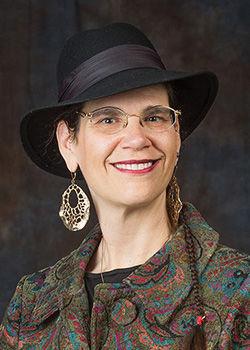While there are multiple questions one could pose to this week's Torah portion, there is one question that I have carried with me since childhood that seems to elicit no interest from the classic commentators.
I will begin by juxtaposing the two curious verses and then invite you to join with me in my "Jewish, textual Rorschach test":
"If a household be too few for a lamb, let him and his neighbor next to (HaKarov) his house take it according to the number of souls" (Shemot/Exodus 12, 4)
"And he said to them thus says the Lord God of Israel, Put every man his sword by his side, and go to and fro from gate to gate throughout the camp, and slay every man his brother, and every man his companion, and every man his neighbor (Krovo)" (Shemot/Exodus 32, 27)
The question I find myself challenged with in the first pasuk (verse) is the relevance of the proximity of the neighbor. We are told that when designating a lamb for the Korban Pesach (the Pascal Lamb) we are not to leave any "leftovers," so if we know that our family is too small to consume an entire lamb then we are obligated to join in with our neighbors. It is the word "next to" / "karov" that I question - what does it matter which neighbor we partner with??? If the issue is that we need enough people to consume the lamb (I can hear you, my dear vegetarian readers…) then what is important is the number of people. Maybe my closest neighbor has a family that is also too small, or maybe too big?
So I knew that the Torah was implying something more than it was telling me. For years I made up an answer for myself - I told myself that the Torah was teaching me something that had to do with the quality of the relationship. Hence, the Torah wasn't offering a geographic location of the neighbors' home, but rather 'close' in the manner that we use this word to relay 'intimacy'. We can, and many times are, very 'close' with people that live on the other side of the world.
I felt the Torah was teaching me that an element of freedom was the ability to nurture and be nurtured by intimate relationships.
Slavery, it seemed to me, was manifested (not only, but also) as a reality in which relationships between people were primarily utilitarian. The question a 'slave' would ask is "How does this person serve me or benefit me in my life?" Or, "What can I get out of this relationship?"
Freedom enables a person to embrace someone else in love as a manifestation of their humanity. Human beings are gifted with the ability to love and be loved (pet owners, I hear you too!). Being a free person enables us to embrace such feelings and others as virtuous, blind to any personal reward or benefit beyond simply manifesting our humanity.
The Ohr Ha-Chayyim will subsequently echo a similar reading of the pasuk in Shemot 32, 27 (Rabbi Artson will have to forgive me for slipping into the Torah portion that he will be, God willing, writing about in a 6 weeks, "Ki Tissa." As a Karov to me I believe he will…).
The Ohr Ha-Chayyim translates the word Karov not as 'neighbor' but as "relative". Based on this reading he asks, "Is there a relative closer to us than our brother? Why is it that after the Golden Calf when the tribe of Levi is sent out does the Torah distinguish between 'brother' and 'relative'?
It is from here that he expounds his teaching by juxtaposing 'biological families' and 'soul-families'. He goes so far as to say that we are closer at times to people that are not our biological family but rather our 'soul-family'. People that I call 'family-by-choice' The Ohr HaChayyim will call 'soul-family'. Parallel to our physical D.N.A. we are also molded by virtue of our spiritual D.N.A.
Have you ever walked into a room and you meet a person for the first time and you fall immediately in love with them and know that you will be friends for ever? And then, another time you meet someone that no matter what they say or do you simply can't stand being around them? In my world of images I offer the paradigm that we were all standing together at Har Sinai (Mt. Sinai) receiving the Torah. Those who I fall immediately in love with are the people that we were standing close to each other in that moment of revelation and therefore the way we live our lives, the way we walk in God's world seem so 'comfortable', so 'familial'. The second group are people who were also there, but they were on the other side of the mountain!!! It isn't that we didn't receive Torah at the same moment, but rather our perspective was totally other!
It is this perspective of our quintessential moment at Har Sinai that defines, for me, who my 'family-by-choice' is; who are those that are actually Karov to me in both meanings - those who stood Karov to me at Har Sinai, and those who are, on a soul level Karov to me.
When coming out of Mitzrayim (Egypt) this Shabbat, who will you be walking with? Who are those that merit the title Karov in your life? And who is that sees you as their Karov?
May we make our way out of slavery and embrace the freedom of revealing those who are Karov to us.
Shabbat shalom.

